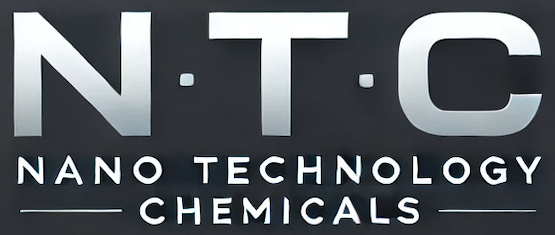Our extensive inventory of over 10,000 products
Acids
Acids are highly reactive compounds known for releasing hydrogen ions (H⁺), playing a critical role in many chemical reactions by either donating protons or accepting electrons. Their versatility makes them indispensable across various industries, where they are used as key reagents in processes.
Additives & Modifiers
Specialized additives and modifiers enhance and improve the performance of your products.Additives refer to substances that are incorporated into a material or mixture to enhance or alter its properties. These additives may improve characteristics like stability, durability, viscosity, or color.
Chelant
A chelant, or chelating agent, is a chemical compound that forms stable complexes with metal ions through a process called chelation. During chelation, the chelant binds to the metal ion at multiple points via coordinate bonds, effectively sequestering the metal. This process controls the metal’s reactivity and solubility.
Enzymes & Microbes
Enzymes are nature's catalysts that enable biochemical reactions in living organisms. Mirobes can include bacteria or fungi that aid in important processess like biodegradation and fermentation.
Enzymes and Microbes have a wide range of applications which showcases their significance. They are used to enhance food production, aid in fermentation processes, or used as sweeteners.
Essential Chemicals
Nano Technology Chemicals carries the broadest line to meet your Essential Chemicals and Ingredient needs.
Essential chemicals and ingredients for your product formulations are covered with a broad range of process aids used in the chemical manufacturing industry as well as food ingredient manufacturing. Chemical and industrial applications include using borates to aid in stain removal and brightening fabrics.
Oleochemicals
Oleochemicals are derived from natural sources that can include plant oils and animal fats and are versatile compounds used in various industries.
NTC specializes in basic oleochemicals, including fatty acids, fatty acid methyl esters, fatty alcohols, and glycerin, as well as their derivatives. Regardless of the feedstock, NTC offers various grades and certifications to meet your manufacturing requirements.
Oxides
Oxides are chemical compounds composed of oxygen atoms that are combines with atoms of another element. These compounds can be found naturally or formed through various processes. Oxides play a crucial role in both natural and industrial applications.
NTC supply and distributes various oxides such as silicon dioxide, titanium dioxide, zinc oxide and others used to create products in the coatings, adhesives, industrial cleaning, food, and pharmaceutical industries.
Peroxides
Peroxide is a chemical compound characterized by two oxygen atoms bonded together in a structure similar to water (H₂O), but with an additional oxygen atom. This extra oxygen gives peroxides their reactive properties. Peroxides act as mild antiseptics and potent oxidizers, commonly used as disinfectants and bleaching agents. Upon contact with organic matter, peroxide breaks down into water and oxygen, releasing reactive oxygen that effectively kills bacteria and other microorganisms.
Polymers & Resins
Polymers are versatile, long-chain molecules that serve as the foundation for numerous everyday products, from plastic containers to synthetic fibers, providing strength, flexibility, and heat resistance in a wide range of applications.
Resins, a specific type of polymer, undergo a transformation during curing, changing from a liquid or semi-liquid state into a solid material, making them essential for manufacturing processes such as coatings, adhesives, and composites.
Silicones
Silicones are a group of synthetic compounds made from silicon, oxygen, carbon, and other elements, known for their versatility and unique properties. They are widely used across various industries due to their excellent heat resistance, water repellency, and nonstick qualities.
Silicones provide a multifunctional range of benefits in both consumer and industrial applications, spanning markets such as construction, electronics, healthcare, and automotive.
Process Aids
Process aids are materials used during manufacturing or industrial processes to streamline or improve production efficiency. While they are not typically part of the final product, they play a crucial role in enhancing various aspects of production, such as increasing process speed, reducing energy consumption, preventing material adhesion, and optimizing overall performance. Their use helps manufacturers improve the quality and cost-effectiveness of their processes without altering the end product itself.
Silicates
Silicates are a large and diverse group of minerals and compounds composed of silicon, oxygen, and various metal cations. Their unique properties and abundance make them integral to both natural processes and numerous industrial applications. In biology, silicates form the skeletal structures of organisms like diatoms and some marine species.
In industry, silicates are essential components used across a wide range of sectors, including ceramics, construction materials, cosmetics, electronics, glass manufacturing, paints and coatings, pharmaceuticals, and water treatment.
Sodium (Salts)
Sodium, commonly referred to as salt, is a vital mineral that plays an essential role in numerous biological processes and is a fundamental component in various industrial applications. Primarily composed of sodium chloride, salt is a naturally occurring crystalline substance found abundantly in seawater and underground deposits.
This versatile mineral is crucial for regulating fluid balance in living organisms and is widely used in industries ranging from food production to chemical manufacturing, water treatment, and de-icing.
Solvents
Solvents are indispensable, versatile liquids used across numerous industries, serving as the foundation for many chemical processes. They function by dissolving, diluting, or dispersing other substances, making them essential in applications like manufacturing, cleaning, and product formulation. Solvents play a key role in creating solutions, suspensions, and dispersions, facilitating reactions and improving the efficiency of various processes.
Common solvents, such as water, are vital to chemical operations, acting as mediums for dissolving materials and enhancing the performance of products in fields like pharmaceuticals, coatings, and cleaning agents.
Surfactants
Surfactants, short for surface-active agents, are chemical compounds that lower the surface tension between two substances, such as a liquid and a solid or a liquid and a gas.
Surface-active agents, or surfactants, are essential to formulating cosmetics, detergents, and soaps. Surfactants have hydrophilic (water-attracting) and hydrophobic (water-repelling) properties, enabling them to disperse, emulsify, and stabilize mixtures of immiscible substances like oil and water.
